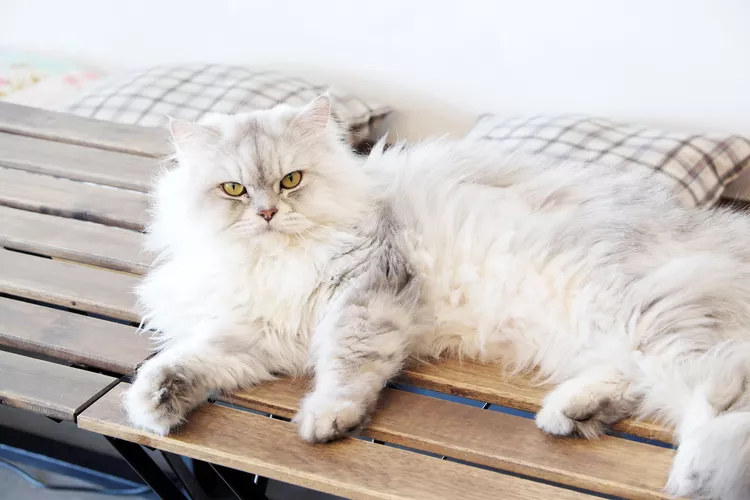Renal Failure in Cats

Renal failure is a relatively common progressive condition in senior cats, but it can occur suddenly in younger cats as well. When a cat's kidneys fail over time, it will begin to feel very ill and lose weight. Acute kidney failure in response to toxic exposure is an emergency that can rapidly lead to death if untreated. While chronic renal failure cannot be cured and is ultimately fatal, it can sometimes be managed to help keep a cat comfortable.
What Is Renal Failure?
Renal failure refers to the irreparable dysfunction of the kidneys. The kidneys have many important functions in the body, including filtering waste from the blood, producing red blood cells, balancing electrolytes, maintaining hydration, and producing urine. If renal failure occurs, the kidneys can no longer do these vital jobs for the body.
Symptoms of Renal Failure in Cats
A cat with renal failure will feel very sick and exhibit generalized signs of illness as well as increased thirst and urination, which specifically indicate kidney involvement.
Vomiting, a lack of appetite, and lethargy are common in any cat that isn't feeling well, but these symptoms are notable in a cat with renal failure.
Your cat will drink more and urinate more if it has a kidney problem, and weight loss will occur as it takes in less food.
Causes of Renal Failure
Anything that affects a cat's kidney function or any type of kidney disease can cause in renal failure. The following list contains some of the most common reasons for renal failure in cats.
- Ingestion of a toxin: Antifreeze, various plants like lilies, and even some human foods like grapes and raisins can cause renal failure in cats.
- Urinary blockage: If a cat is unable to urinate, damage to the kidneys can occur which can lead to renal failure.
- Systemic shock: If a cat's blood flow is disrupted due to shock, kidney damage and ultimately renal failure can happen.
- Heart failure: Heart failure can lead to kidney damage due to increased pressure in blood vessels.
- Low or high blood pressure: If left untreated, abnormal blood pressure in cats can lead to renal failure.
- Medications: Various medications may have side effects that cause kidney damage. This can eventually lead to renal failure.
- Pyelonephritis: Like other forms of kidney disease, pyelonephritis can lead to renal failure.
- Feline Infectious Peritonitis: This disease can cause severe inflammation in the kidneys leading to renal failure.
- Diabetes: High blood sugar levels can cause kidney damage resulting in renal failure.
Some cat breeds are thought to be at a higher risk of developing renal failure than others. These include Persians, Abyssinians, Siamese, ragdolls, Burmese, Russian blues, and Maine coons. These breeds may benefit from regular evaluation of kidney function and lifelong kidney support supplements.
Diagnosing Renal Failure in Cats
If you suspect your cat has developed renal failure or kidney disease, a veterinarian examination is warranted. Both urine and blood tests are likely to be run to look for signs of disease and kidney damage. Your cat's blood pressure may be taken. Your vet will ask you questions to try to discern if there was any potential exposure to toxins or medications.
If there is evidence of kidney damage or a problem with your cat's kidney's ability to function normally, X-rays and/or an ultrasound may be recommended.
Recently, a new test has been developed that measures the concentration of symmetric dimethyl arginine (SDMA), a waste product of protein metabolism. This test is used to detect chronic kidney disease in cats sooner than the traditional blood and urine tests. Earlier detection can lead to treatment that helps prolong cats' lives.
Treatment of Renal Failure in Cats
Depending on the cause of the renal failure, fluid therapy and medications to manage the symptoms are typically used.
Some causes of renal failure may warrant hospitalization to stabilize your cat, but there is no way to reverse or cure the disease.
Management of symptoms and delaying the onset of complete renal failure and ultimately death are the goals. Once your cat's quality of life is no longer good, euthanasia will be recommended.
Prognosis for Cats with Renal Failure
Renal failure is an incurable and ultimately fatal condition, but it can sometimes be managed to prolong a cat's life in relative comfort for a few months or even up to a couple of years.
How to Prevent Renal Failure in Cats
Since renal failure can occur due to kidney damage, the best way to prevent renal failure in your cat is to keep its kidneys healthy. Encourage water intake through the use of water fountains, and monitor urine output to ensure your cat is urinating normally and regularly.
Once kidney disease has been diagnosed, a diet that is low in protein, phosphorus, and sodium is an important management strategy to help delay the onset of renal failure.
Additionally, ask your vet if kidney supplements should be added to your cat's diet. Omega-3 fatty acids in fish oil, probiotics, B vitamins, and a variety of antioxidants may benefit your cat by supporting its kidneys.
Regular yearly blood screenings including monitoring kidney enzyme levels can also help prevent renal failure.